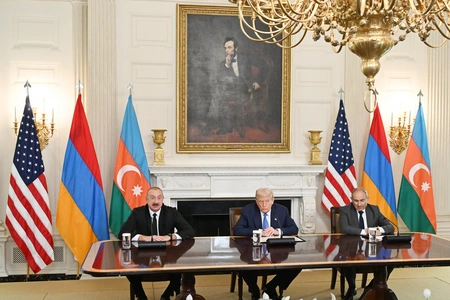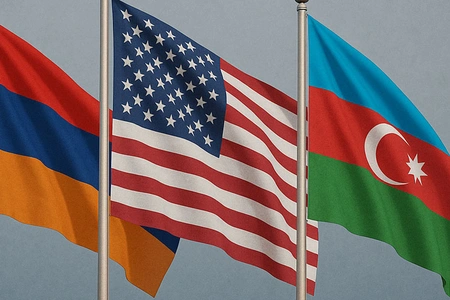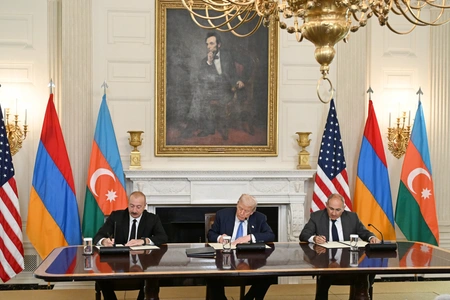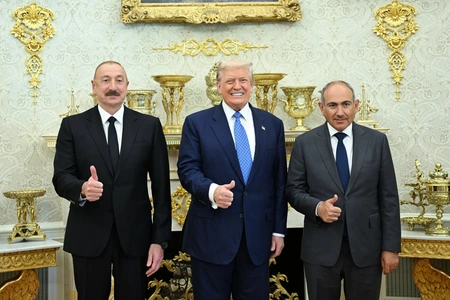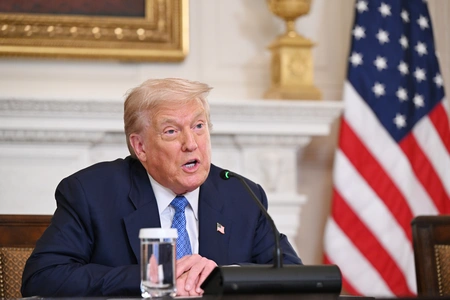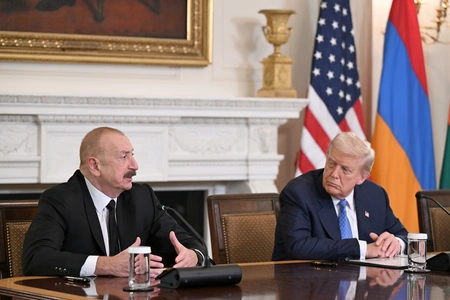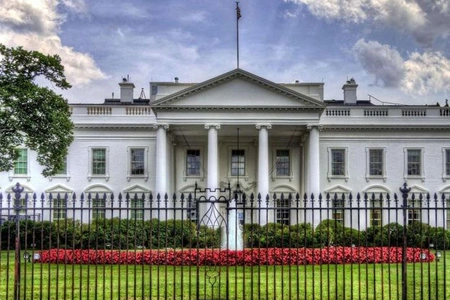Magic of 8: From Karabakh victory to historic peace
- 09 August, 2025
- 17:30
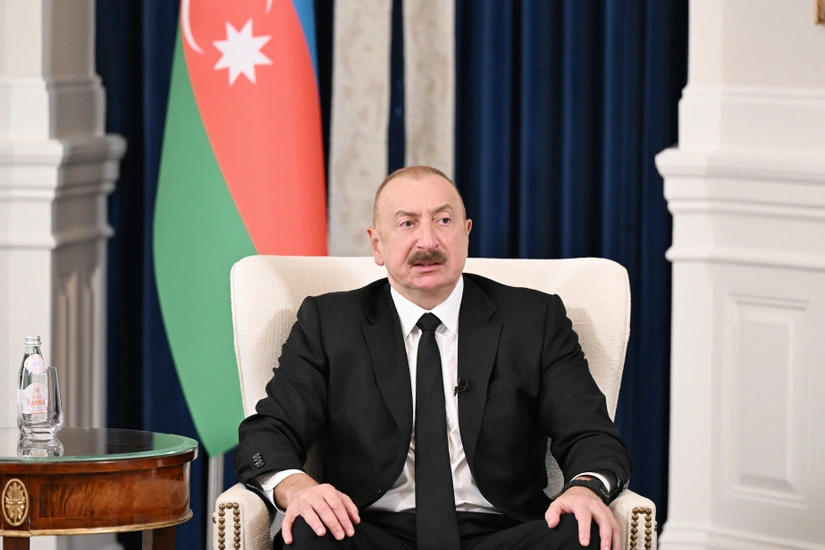
November 8, 2020. President of Azerbaijan Ilham Aliyev announces the liberation of the pearl of Karabakh – the city of Shusha. Some time later, this day became the Victory Day of Azerbaijan in the Patriotic War. On this very day, Azerbaijan by its own efforts regained its honor and pride, trampled upon by the silent inaction of the world community for 30 years.
It would seem that this victory should have been a sobering wake-up call, first and foremost, for Armenia, as well as for other countries claiming the role of actors in the South Caucasus region. But those countries, which for 30 years covered up the occupation of Azerbaijani lands, suddenly found their voice—not a voice of justice and peace, but a roar of revenge and unfounded accusations against Azerbaijan. Yet all these “champions of truth” failed to realize that Azerbaijan has changed; it secured victory on the ground and steadily prepared the groundwork for victory in diplomacy. The tough and irreversible policy course of President Ilham Aliyev, aimed at fully ensuring the sovereignty and territorial integrity of the country, gradually led us toward peace on the terms of the victorious country. And no matter how much others tried to lead the peace process between Azerbaijan and Armenia back onto the path of endless negotiations, to challenge the newly established realities, which, by the way, fully comply with all international norms, Azerbaijan did not retreat from its conditions by even a fraction.
August 8, 2025. In Washington, President of Azerbaijan Ilham Aliyev, US President Donald Trump, and Prime Minister of Armenia Nikol Pashinyan sign a historic declaration, which is in no way inferior to a peace treaty between the two countries. This declaration not only confirms the initialing of the text of the future peace agreement, but also covers the resolution of a significant range of issues that had prevented the peace process from moving off dead center. This includes the dissolution of the OSCE Minsk Group - one of Azerbaijan’s conditions for signing the peace treaty, the commitment not to revise the ongoing process of building good-neighborly relations, the closing of the chapter of hostility between the two peoples, and the exclusion of attempts at revenge in the future. It also includes the obligation to accelerate the conclusion of the peace treaty and the subsequent ratification of the document. And for this, a change in the Armenian Constitution is necessary, with the elimination of clauses on territorial claims against Azerbaijan, which is the second condition put forward by Baku.
Moreover, in this same declaration, Armenia undertakes to “ensure unobstructed communication between the main part of the Republic of Azerbaijan and its Nakhchivan Autonomous Republic through the territory of the Republic of Armenia.” That is, it concerns the opening of the Zangazur corridor, by the way, another obligation of Armenia, from which it had previously distanced itself. While it succeeded at first, now it is unlikely that Yerevan will succeed. Moreover, this corridor will later be integrated into the “Trump Route for International Peace and Prosperity” (TRIPP) project to ensure transport links on Armenian territory.
And US President Donald Trump, who expressed his readiness to fully support the process, stands as a guarantor of the implementation of all these agreements.
Trump is a man of his word – he said it, so he will do it. Just as he settled the issue with the notorious Section 907. The removal of this injustice, which for 33 years has limited the possibilities of cooperation between the US and Azerbaijan, became one of the important results of the Washington meeting between the two leaders.
It is no coincidence that President of Azerbaijan Ilham Aliyev called August 8 a historic day in the US - Azerbaijan relations, which will have very positive consequences for the entire region. He was echoed by the Prime Minister of Armenia Nikol Pashinyan, who said this is truly a historic day and a success for the countries and for the region, and that the whole world will also benefit from it.
The unity and positive attitude of the leaders of the three countries definitely makes one count on achieving of a long-term and lasting peace in the region. And no external forces will be able to prevent this, no matter how much they strive. And the desire to interfere and harm will certainly be there, as we have seen over the past five years and earlier as well.
But the political will of President Ilham Aliyev and Trump's stable support for the peace process make it possible to speak with high probability about the formation of a new world order in the South Caucasus, built on good-neighborliness, the implementation of new regional projects, and economic-logistical integration.
